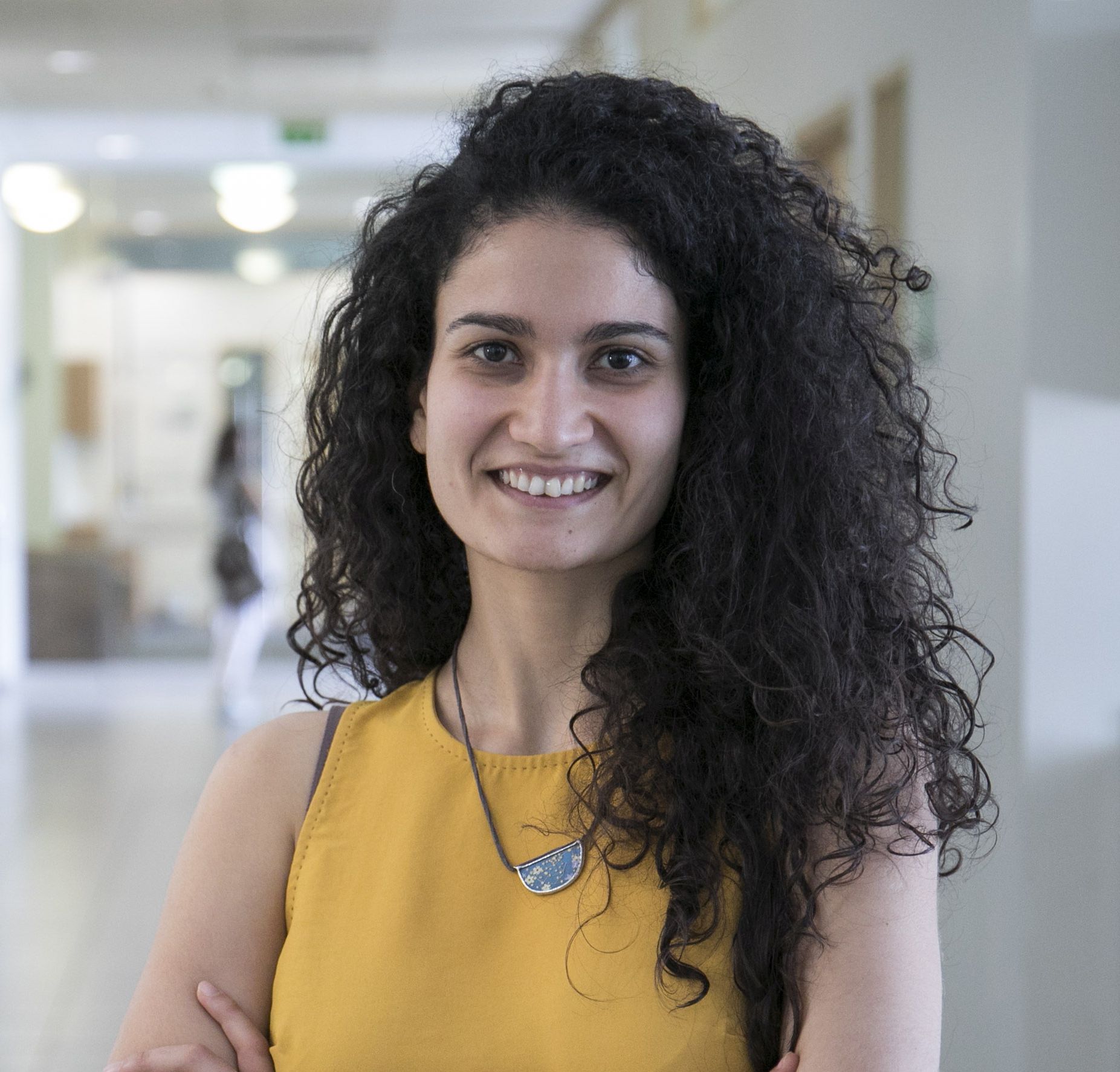
Lilit Nersisyan is a bioinformatics and computational biology researcher. From 2014-2017 she has conducted doctoral studies at the Institute of Molecular Biology NAS RA and graduated from Leipzig University in Germany. From 2018-2021 she has performed postdoctoral studies at Karolinska Institutet in Sweden, being an awardee of the Marie-Curie Individual Fellowship. Currently, Lilit acts as the founding director of the Armenian Bioinformatics Institute.
Lilit is interested in the development of algorithms and software solutions for the analysis of genomics datasets and biological networks. The biological focus of her work involves telomere biology, cancers, mRNA degradation, and the human microbiome.
Higher education
2017, Ph.D. in bioinformatics
IMB, National Academy of Sciences RA & University of Leipzig, Germany
2013, Master’s in Computer Science
American University of Armenia
2012, Master’s in Biotechnology
IMB, National Academy of Sciences RA
2010, Bachelor’s in Biophysics
Yerevan State University
Courses taught:
Computational Biology
Publications:
- Nersisyan L, Ropat M, Pelechano V. Improved computational analysis of ribosome dynamics from 5′P degradome data using fivepseq. NAR Genom. and Bioinf. 2020.2(4): lqaa099.
- Arakelyan A, Nersisyan L, et al. Transcriptome-Guided Drug Repositioning. Pharmaceutics 2019. 11(12): 677.
- Nersisyan L, Hopp L, et al. Telomere Length Maintenance and Its Transcriptional Regulation in Lynch Syndrome and Sporadic Colorectal Carcinoma. Fron. Oncol. 2019.
- Nersisyan L, Nikoghosyan M, et al. WGS-based telomere length analysis in Dutch family trios implicates stronger maternal inheritance and a role for RRM1 gene. Nat. Sci. Rep. 2019. 9:18758.
- Hopp L, Loeffler-Wirth H, Nersisyan L, Arakelyan A, Binder H. Footprints of Sepsis Framed Within Community Acquired Pneumonia in the Blood Transcriptome. Front Immunol. 2018. 9:1620.
- Kovalchuk A, Nersisyan L, et al. Growth of Malignant Non-CNS Tumors Alters Brain Metabolome. Front Genet. 2018. 20;9:41
- Arakelyan A, Nersisyan L, et al. Autoimmunity and autoinflammation: A systems view on signaling pathway dysregulation profiles. PLoS One 2017. 12(11):e0187572.
- Nersisyan L, Arakelyan A. A transcriptome and literature guided algorithm for reconstruction of pathways to assess activity of telomere maintenance mechanisms. bioRxiv 200535.
- Binder H, Hopp L, et al. Genomic and transcriptomic heterogeneity of colorectal tumors arising in Lynch Syndrome. J. Pathol. 2017.
- Nersisyan L. Integration of Telomere Length Dynamics into Systems Biology Framework: A Review. Gene Regul Syst Bio. 2016, 10:35-42.
- Arakelyan A, Nersisyan L, et al. Cartography of pathway signal perturbations identifies distinct molecular pathomechanisms in malignant and chronic lung diseases. Front Genet. 2016, 7:79.
- Nersisyan L, Löffler-Wirth H, et al. Gene Set- and Pathway- Centered Knowledge Discovery Assigns Transcriptional Activation Patterns in Brain, Blood, and Colon Cancer: A Bioinformatics Perspective. IJKDB 2016, 4(2):46-49.
- Hakobyan A, Nersisyan L, Arakelyan A. Quantitative trait association study for mean telomere length in the South Asian Genomes. Bioinformatics 2016, 32(11):1697-700.
- Hopp L, Nersisyan L, et al. Epigenetic heterogeneity of B-cell lymphoma: Chromatin modifiers. Genes 2015, 6(4):1076-1112.
- Nersisyan L, Johnson G, et al. PSFC: a Pathway Signal Flow Calculator App for Cytoscape [version 2; referees: 2 approved] F1000Research 2015, 4:480.
- Nersisyan L, Arakelyan A. Computel: Computation of Mean Telomere Length from Whole-Genome Next-Generation Sequencing Data. PLoS One 2015. 10(4): e0125201.
- Nersisyan L, Samsonyan R, Arakelyan A. CyKEGGParser: tailoring KEGG pathways to fit into systems biology analysis workflows [v2; ref status: indexed, http://f1000r.es/45p]. F1000Research 2014, 3:145.
- Arakelyan A, Nersisyan L. KEGGParser: parsing and editing KEGG pathway maps in Matlab. Bioinformatics 2013, 29(4): 518-9.
- Nersisyan L, Arakelyan A. In silico structure characterization of Familial Mediterranean fever gene product (pyrin). IPCBEE 2012; 29: 40-44.
Research database IDs:
Google scholar: https://scholar.google.com/citations?user=u-eEMToAAAAJ&hl=en
ORCID: https://orcid.org/0000-0001-8525-420X
Awards:
European Union Marie Skłodowska-Curie Individual fellowship
Stockholm, Sweden 2019-2021
EMBO Short Term Fellowship
Leibniz Institute on Aging, Jena, Germany, 2017
DAAD Short Term Scholarship
Interdisciplinary Centre for Bioinformatics, University of Leipzig, Germany, 2016
